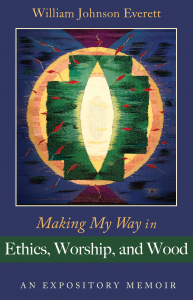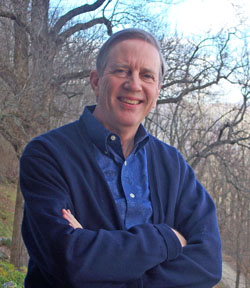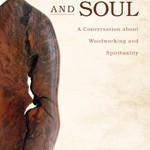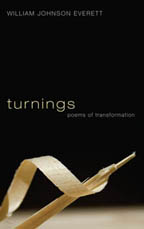The United Methodist Church will gather bishops, clergy, and lay delegates from around the world in St. Louis this week to decide how to adjust its church structure to accommodate deep differences among its members about non-heterosexual identities and relationships. At the same time, the Pope has expelled Cardinal Theodore McCarrick from the priesthood for his decades-long sexual predations and called for a meeting of church leaders to set a future course for the Church to deal with clergy sexual abuse. Concurrently, Southern Baptist Churches are struggling with an extensive expose of sexual abuse in many of the independent congregations constituting the Southern Baptist Convention. The tangle of sexual crime and ecclesiastical order seems unending, mirroring analogous perversion and destructiveness in politics, sports, business and beyond. In the midst of the media torrent of sensational tawdriness many of us are struggling to make some sense of this relentless scandal. In the Methodist case, the mere fact of vast differences in sexual beliefs and practices is threatening the continued existence of the United Methodist Church as it has existed since the mid-twentieth century. The same has been true of Episcopal, Presbyterian, Congregational and other denominations in recent years.
As I continue with writing and re-writing my memoir about my own intellectual journey, I see how the relation between sexuality and ecclesiology has been one of the threads running through my professional work since the beginning. My interest in ecclesiology first surfaced in my senior honors thesis at Wesleyan University on some leaders in the American Baptist Churches. In my graduate work I became fascinated with the body metaphor for social and ecclesial organization, leading to a dissertation on “body thinking.” Why do we transfer the thoughts and emotions connected to our own bodies onto much larger social relationships, endowing them with bodily metaphors of incorporation, mind, and personality? How can we reconcile this strong connection of sexuality and organizational vitality with our longing for a civil republic based on reason and law?
First of all, it becomes clear that large organizations and nation states require deep commitment, indeed, self-sacrificing commitment, in order to function and survive. The mutual self-giving known in marriage, where, as Genesis states, a man and a woman become “one flesh,” becomes extended to a sense of identification between our individual bodies and the greater “body” of the organization, including the nation. As in the marriage described by St. Paul in I Corinthians 7, we give to the other body authority over our own. We have to be socialized in some way into believing that the survival of our own body depends on the survival of the larger body of which we are a part. The love of our own sexual pleasure and procreative power is one of the most powerful sources for this social commitment.
In a world that often claims to be constructed out of beliefs, agreements, contracts, covenants, and constitutions, we often come to think that the sworn oath contains enough emotional power to knit our own welfare to that of the larger organization. Our world of lawful order is built on a belief that we are a “nation of laws rather than of men (or persons).” In the United States, as in some other countries, this belief in an order of law is being tested mightily in the face of attempts by “strong men” to rule the body politic by sexually powerful decrees (or tweets) of shame and attraction. In the church we have often recognized that the sexual charisma of the leader, whether through the image of virgin self-control or open personal charisma, is a powerful source of personal motivation that can easily lead to corruption of the ecclesial order and its professed message.
In short, sexual bonds and desires have always been one of the most powerful forces for creating social orders larger than the household of conjugal union. Figuring out how to channel and constrain this powerful force in the service of a wider public based in reason and law has always been essential to an enduring public philosophy. The work is never done.
Second, sexual bonds create very powerful paradigms of social order. These sexual bonds are formed in our earliest intimate relationships of the family. Most of the large-scale organizations of earlier times were magnifications of the father-child relationship into patterns of boss-worker, lord-vassal, king-subject, and priest-parishioner. Deep sexual longings, what Freud called libidinal drives, are the engine of this pyramidal paradigm of power and authority. It was this paradigm that was attacked by the early English republicans and the founders of the American republic. (See my earlier blog on “Patriarchs, Republics and our Present Travail.”) It is this paradigm that has been overlaid rather than erased by the civil and bureaucratic orders established in the last two centuries in Europe and America. Its recrudescence in scandal and personal destructiveness forces us to remember not only how precarious this civil order is, but how easily it can be subverted by the manipulation of these primordial sexual desires.
Thus, I see the attack on marriage between Gay and Lesbian persons not as attacks on the behavior of specific persons but as efforts to defend the hierarchical paradigm generated by the man-woman household of our human history. The father-child model of divine and ecclesial order is challenged by the revelation of the destructiveness of the sexual forms through which it drew its power. Exposing the destructiveness of sexual relationships within this male-dominated paradigm can move churches to structures of greater mutual accountability and integrity within the publics of the church.
In short, what these conflicts are saying to me today is that we can never lose sight of the connection of sexuality to our ecclesiology, our spirituality, our politics, and our economic life. Moreover, we must continually struggle to form and reform these sexual drives around relationships of equality and mutual dignity. At the core of the reshaping of our public order of civility is our reframing of marriage as the companionship of sexual beings longing to give and receive each other in love.







 Red Clay, Blood River
Red Clay, Blood River
If we dispense or adjust patriarchal control of sexuality as well as ecclesiology, what will mutuality and respect look like institutionally? An overarching ethic of competence or talent? or status? I like one of compassion. Requires a feminine ethics, but not of matriarchy? or…?
You’re a good man, Bill. I’ll be praying for the UMC this week.